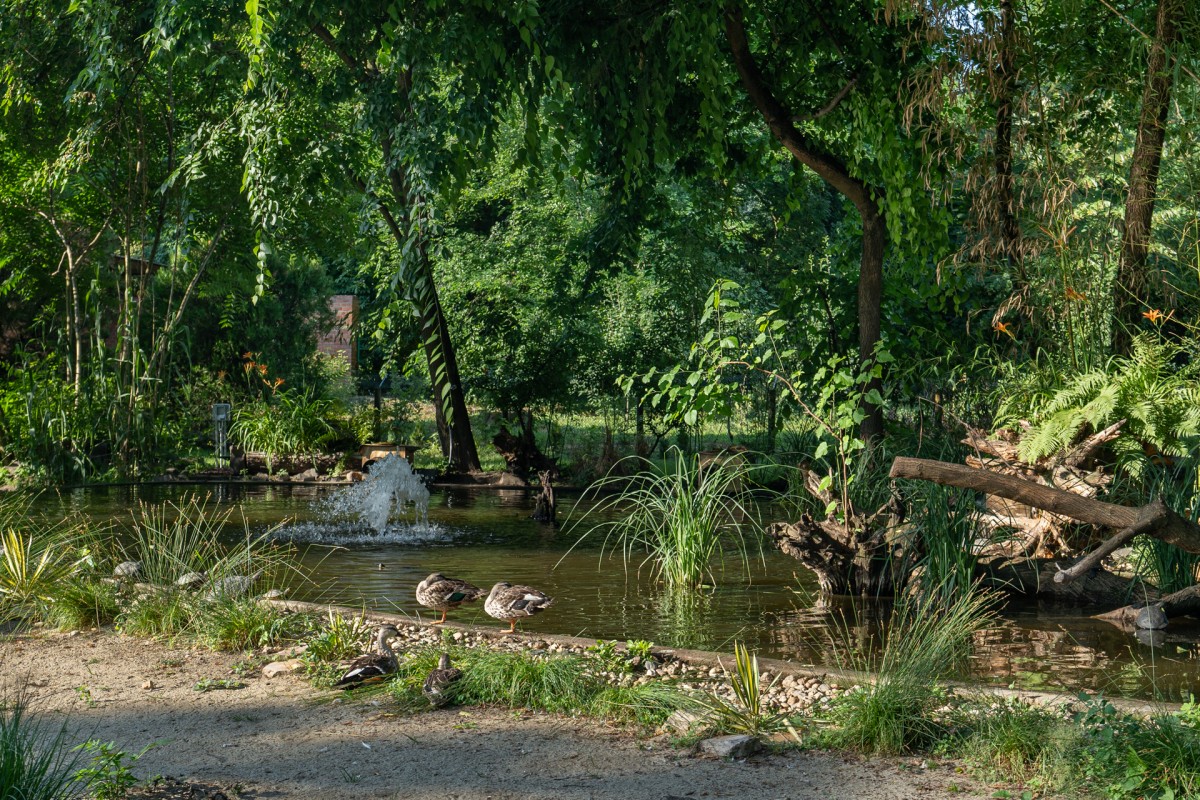The renewed social performance of the Civisváros institution was recently augmented by representatives of newer, never-before-seen species after two pairs of spotted teal ducks arrived from Plzeň in the Czech Republic and an Amazon tern hen from the Dortmund Zoo. The newcomers have already taken possession of the lake, where visitors can also view it in the company of their relatives, including Carolingian, Mandarin and Red-shouldered Ducks, and Swamp and Jewel Turtles, who arrived in the spring. In addition to the colorful inhabitants, it is also worth admiring their surroundings, as the lake is now home to its special teal population, complemented by lush waterfront vegetation, ripples and breeding ducks, hopefully promoting successful reproduction in the near future.
It is the only species of the genus Amazonetta brasiliensis native to the lowland rainforests, grassy steppes and shrubs of Central and Eastern South America, near lakes or swamps. The easiest way to distinguish for both light brown feathered hens and hens is by the color of their beak – the former is red, the latter is gray – and their head patterns are also different.
It is characterized by the imposing metallic green color of its paddle feathers, but this can only be admired in the open state. It got its name from its characteristically yellow tip of the beak and the reddish spot at the base of its beak; the latter is clearly visible at the roe deer, while at the laying hen it is largely or even completely absent.
Although wild populations of both species are populated, for the time being, they are listed on the Red List of the World Conservation Union (IUCN) due to habitat loss and declining numbers due to hunting. They are a real rarity among the Hungarian zoos, as the amazon duck can only be found elsewhere in the Budapest Zoo and Botanical Garden, and the spotted duck can only be found in Debrecen.
zoodebrecen.hu




















